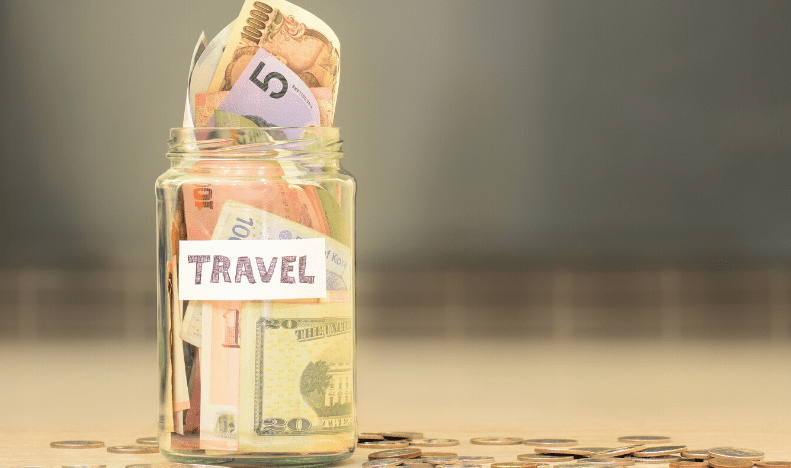

*This post may contain affiliate links. Opinions shared are my own and I only endorse products I support. By clicking on any of the links below, I may get a small commission if you make a purchase at absolutely no additional charge to you. I appreciate your support.*
You may have encountered certain buzzwords around family travel such as nomad travel, full-time travel, and travel forever.
It sounds like a fantasy, right? Nope! Our family set out to travel the world over two years ago and we haven’t looked back since!
Often the first question we are asked when discussing our travels is, “How can you afford to do this with five kids?!”
I’ll give you the elevator pitch and the nitty-gritty answer of how we afford our full-time travel life. I’ll also encourage you and give you tools to estimate how you can afford this life too!
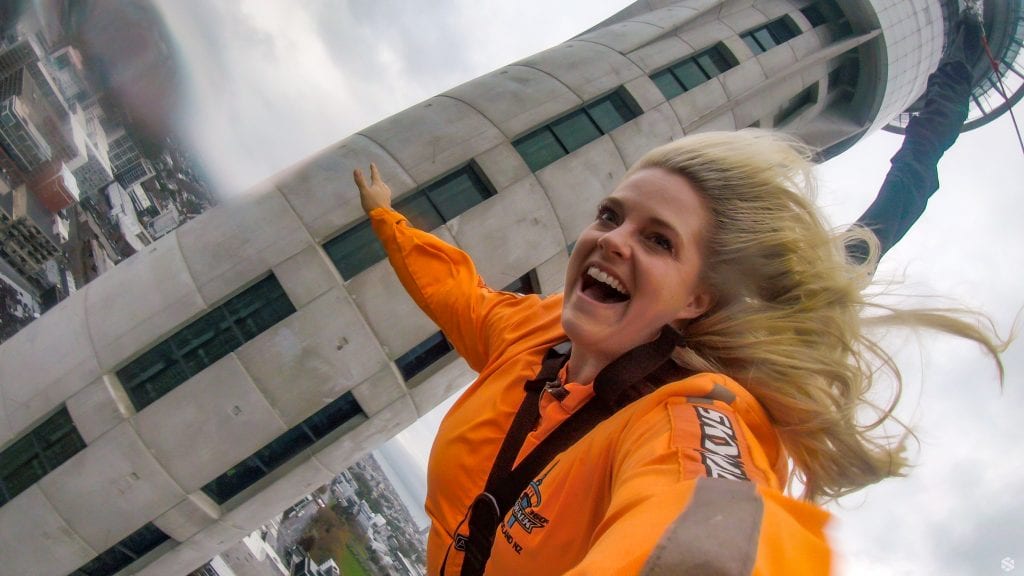
We travel the world together as a family of seven. None of us embarked on a world adventure thinking, “I just want to travel the world.” We left searching for a new kind of life. Do we plan to travel forever? Well… maybe!
I’ll let you in on a little secret: traveling full-time is highly addictive. Not because it is always easy! Travel life demands a lot of you and can be draining at times. However, it offers freedoms that you probably only daydream about.

Every full-time traveler figures out their own way to make this lifestyle work financially. Most have not won the lottery, do not live off trust funds, are not living off the sale of a business nor have loads and loads of money.
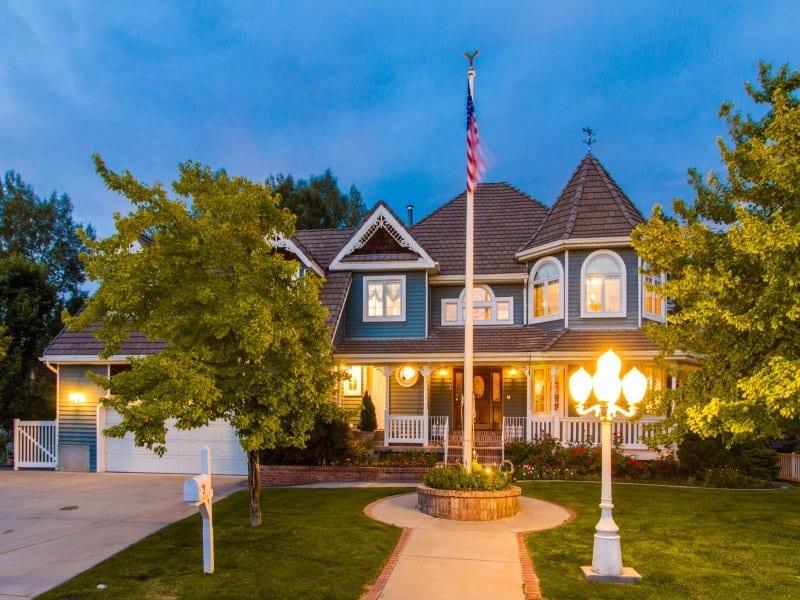
For us, the answer is pretty simple. We own our own consulting business. Chris, my husband, has been consulting in online advertising for over 10 years. I do the accounting and other management work in this business, as well as other businesses we own. We are blessed to have remote staff around the USA, many of which love to travel as well!
Having worked remotely for many years, that aspect of affording full-time travel was already solved for us. Sure, taking a business through many time zones and countries does come with its own challenges, but we generally work US hours wherever we are in the world and have made it work.

Our work schedule can vary from very early in the morning (like in New Zealand) to through the night (like in Tokyo when Chris would watch the sun come up before he went to bed).

We were not sure if our business would continue to successfully run when we left. We told ourselves, worst-case scenario, we come back home broke, with our tails between our legs, and enjoy the memories we’ve made!
Thankfully, our business not only has survived, it has grown larger than even we could have predicted. We attribute these blessings to a loving Heavenly Father, lots of prayers and making our decisions based on faith.
When we set out to travel the world, we did not know how to travel on a budget. In fact, we still don’t really know how to travel cheaply! We love luxury family travel, which differs from many full-time travel families.
Before I answer how much it costs us, it’s important to take into consideration that travel style makes a HUGE difference in cost.
While we travel in more of a luxurious travel way, many full-time travel families don’t. In fact, I’d argue MOST don’t. I don’t want to scare you off by thinking that you need loads and loads of money to travel the world full-time.
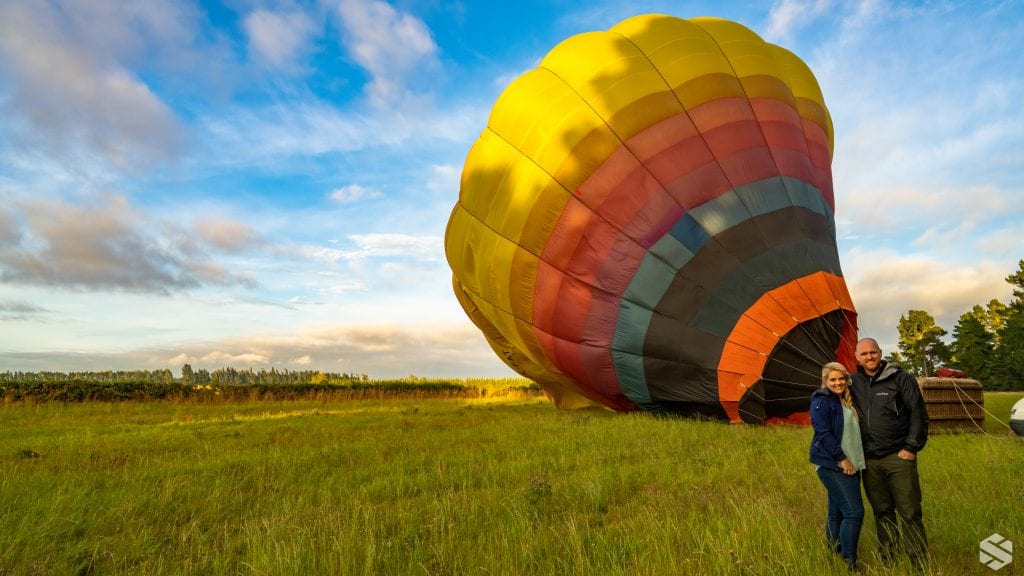
We know several families that do their family travels on a tight budget and make it work. Click here to learn more about one of our favorite travel families, The Wallace Reboot, that has traveled for years around $1200 per month.
In fact, visits our Modern Nomad Section to learn about over a dozen travel families and how they afford to travel.
How you choose to travel OBVIOUSLY affects how much you spend! This makes it nearly impossible to estimate a generalized number that can apply to everyone.
Do you like to sleep in hostels, 4-star hotels, or something in between?
If you are staying at an Airbnb, do you want it in a centralized location, close to public transportation? How many bedrooms do you need? Do you care if it has laundry and Wifi?
These are all questions to consider, as the pricetag differs greatly.
It is a testament to the lifestyle to find out that most travel families (and singles and couples) learn tricks, travel on a budget, and work hard to make it work for them. Learning how to travel full-time takes work.
I get asked often how much we actually spend on our travels, to which I usually answer that
1. This is a personal question.
2. This is completely variable depending on so many factors!
We need to run our businesses online as we travel, we like our space and our amenities and we enjoy many activities; all of which drive up our costs! Add in five kids and our costs are likely much higher than yours would be with a smaller family.
Below is a table for how much we spend, on average, for different locations we’ve visited. I projected costs based on a 30-day timeframe in each location, since that is our preference. Keep in mind, these numbers are calculated for a family of 7.
Note: We did not stay a full month in some of these locations, especially the more expensive ones, so I’ve projected out costs for some locations. Also, note that even these projections are highly variable depending on where you stay. We stayed in Paris proper, for example, but staying just outside of Paris and catching the train to the city can greatly reduce costs.
A few things to keep in mind (and why your budget will likely be much less):
Honestly, unless you are also a big family who lives on a more luxurious level, you will not need to spend as much as us. Costs get exponentially greater as families get bigger. For example, a standard rental car might be $15-20 per day, whereas a vehicle for us can be $40-60 due to the required number of seats.
To help get your juices flowing, I’ve put together a similar table for a family of four in these locations.
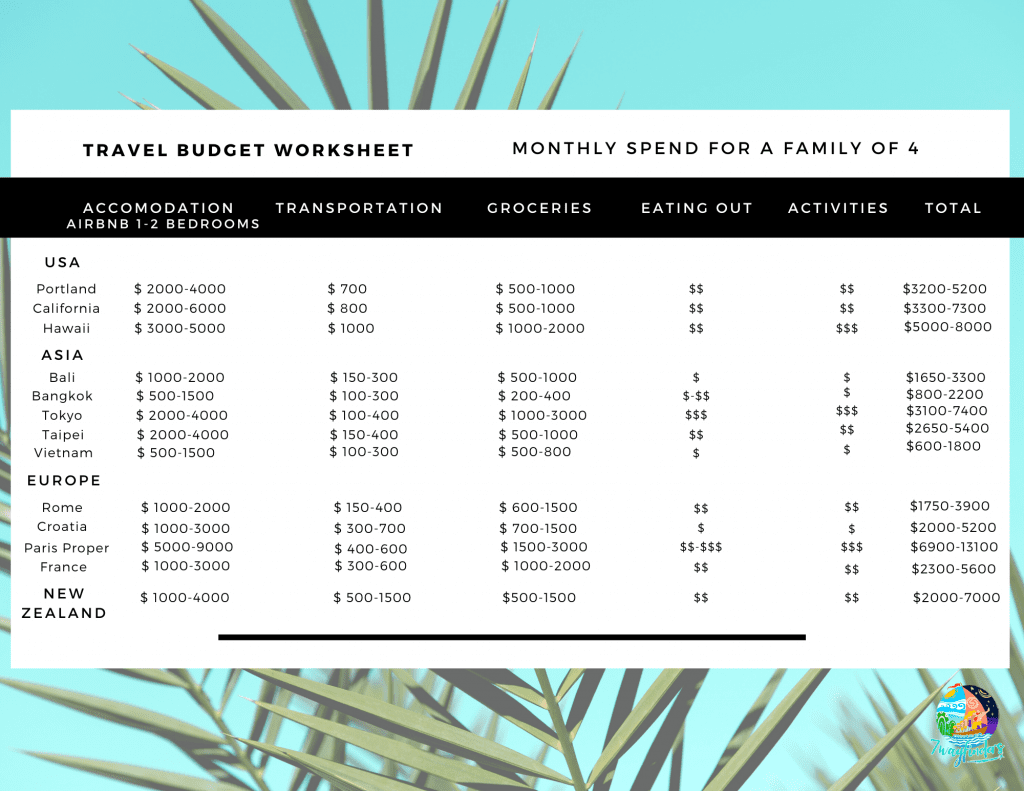
As you can see, variable travel costs can vary greatly. These are just a sampling of the 30 or so countries we’ve been to and gives you an idea of how wide the ranges can be!
“This is great Leslie, but how much DO I NEED?”, you are saying. I get it!
The answer to this depends on so much, but I want to do my best to empower you to figure this out. You too, can find affordable travel for your family!
First, let’s consider a few things….
Will you be actively earning money while you travel? Can you take your job (and income) remote? Will you try to find new, remote work while traveling?
Earning money while traveling full-time extends the timeline you can do this. You don’t have as much of a deadline looming over you if you are still brining in money. Hiccups and unexpected expenses won’t shake you as much.
You will be working around the world! You’ll miss opportunities to sightsee on those days you work.
Even with a month in each country, we still feel like there is so much more to see when we leave. Our choice of one destination per month is largely based on the fact that we work as much as we do. We need enough time to work and go sightseeing.
Perhaps you’ve managed to save a chunk of money from selling a house, contributing to a fund for a few years, selling your car and other possessions. Many families that travel full-time operate this way.
The good news is you can see so much more and move much quicker. You’ll be solely focused on your travels and can move at a quicker pace. More locations are possible in a shorter time.
You may have more flight costs as you travel more. Unexpected costs, such as a missed or cancelled flight, unexpected change to your itinerary, or a medical emergency can drain that budget quickly. Stress over the budget might send you home early.
Perhaps the best scenario would be to do a bit of both. Can you find remote work to supplement the savings you’ll be using? You could teach English online, get remote contractor work through a site like Upwork, or become a virtual admin.
This option extends your timeline while you figure out your style and desired way of life.
I’ve noticed many families start their travels and do their “gap year” only to find they don’t want to stop when that year or 18 months is over. They scramble to figure out how to avoid going back home to their old life.
Anticipate these feelings, even if you have a hard deadline of return.
Many a traveller or travel family has tried to build businesses out of their travel life.
Some have been successful in this, but I would advise against this being your sole plan. The space is ultra-competitive and there are a lot more families full-time traveling than you think! I’d say there are over 100 that I have somehow connected with or seen on Instagram.
As unique as you feel your story is, it’s not the first!
How much do travel bloggers make? I’ve delved deep into this world as I build out my own travel blog. Let me first say, it is a lot more work than you’d expect!
Most travel bloggers make money on advertisements. For this to work, you need substantial traffic, SEO strategies and more. It’s an entire business itself, and one that is difficult to master.
Full disclosure: after two years of running this blog, I’ve made little to no money at all. I do it for the pleasure of it and hope that someday it might pay back the countless hours it takes me to write!
In the last few years, blogs have popped up all over the place. Digital real estate and marketing continues to become more difficult to break into.
Can you make a living off your social media profiles? Perhaps. However, competition is fierce in this space as well.
We occasionally get free experiences for our family as we travel, which I love. I’ve had much less success with free hotel stays or discounts on “hard costs.”
You’d also be surprised at the work that goes into pitching brands, arranging collaborations, getting the photography, posting correctly, etc. Many families I know (myself included) can spend upwards of 3-4 hours per day to get that perfectly curated feed.
Definitely document your travels as you want! We do most of our documentation for our memories. However, I also really enjoy the space and the time commitment is OK with me. I can also lean on our business staff to help.
Once you’ve decided how you’ll make money or what you’ll be doing to fund your travels, it’s time to budget!
You’ve seen our rough costs already. Hopefully it wasn’t too overwhelming!
The most important thing to remember in this budget is all the costs you will not have any longer when you start full-time travel. These can include:
I was curious to see the average income for a middle-class family. According to this site:
“The 2018 piece from Pew reported that, in 2016, the median income for the upper-income class was $187,872. While for the middle class, it was $78,442, and for the lower class, it was $25,624 (in 2016 dollars; figures reflect a three-person household)”
Regardless of where you fall in these categories, you can still travel the world. I’ve seen families travel on all of these kinds of budgets and they all can work.
The first step in your budget is knowing where you want to go.
If I had to rank cheapest places to travel, I would rank them as follows:
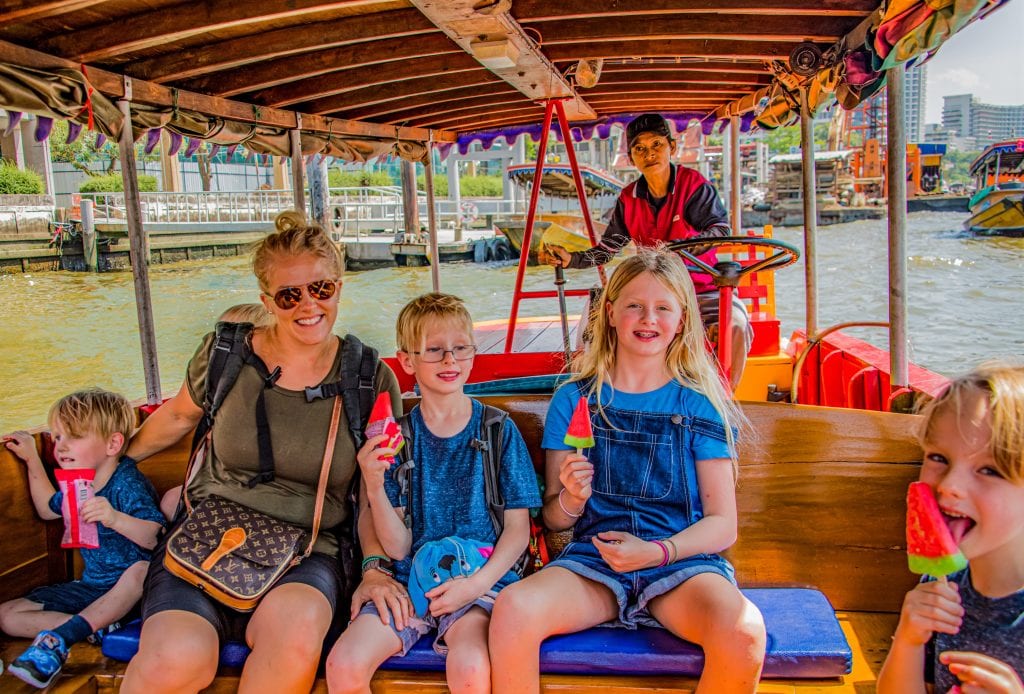
Map out costs based on the locations you want to visit. There are many cheap places to travel. South-East Asia can be incredibly affordable, even for a big family like ours!
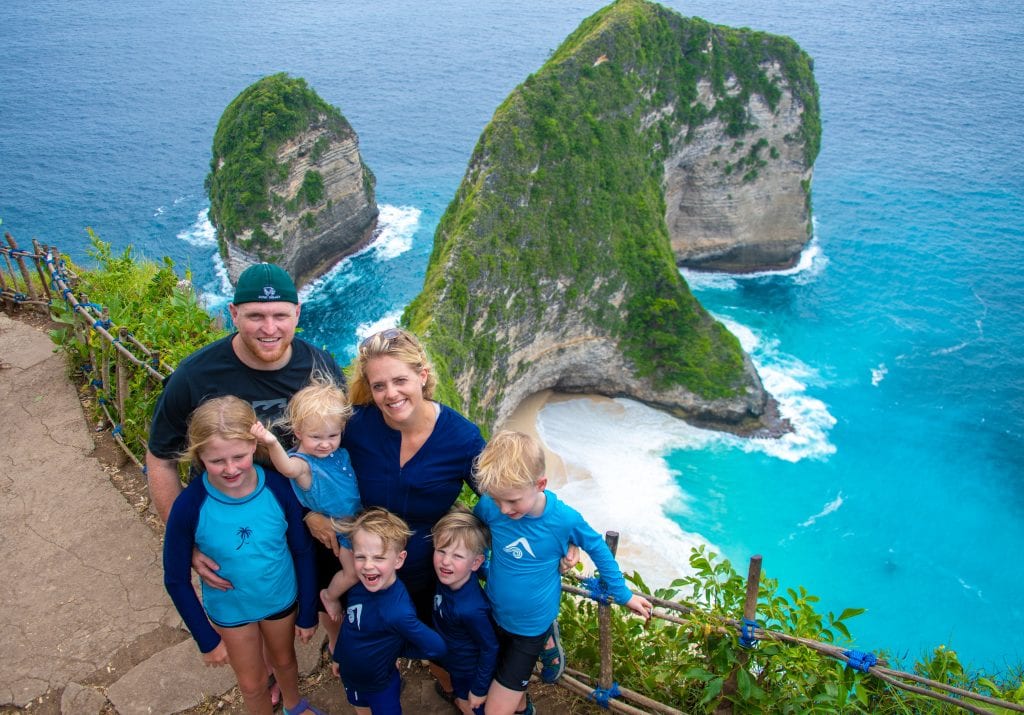
In general, Europe costs more if you are visiting the big, touristy cities and trying to stay downtown. However, outside of these cities, life is quite affordable. If you have a rental car and don’t mind exploring a bit you can save a lot by staying farther away.

Note: You may wonder how to afford rental cars. If you are in Asia, you won’t need them. We didn’t have a rental car in any of our Asia travels. In Europe, we did a long-term lease with Renault. I will detail this in a separate post.
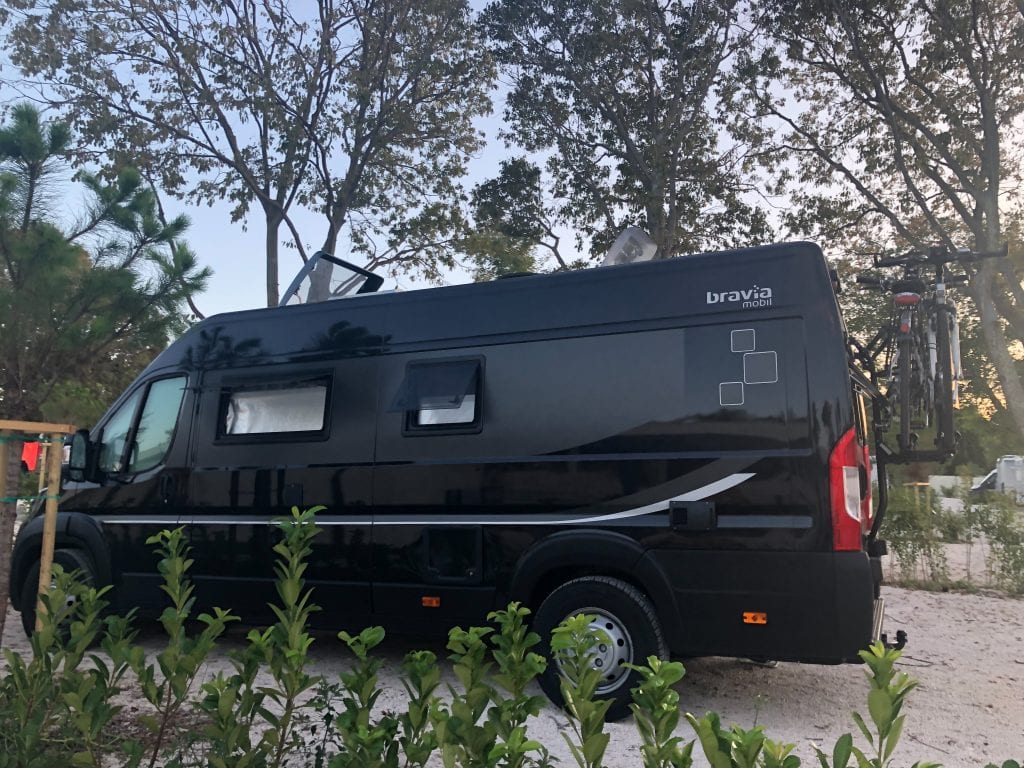
Eastern Europe provides more opportunities for budget travel. This area tends to be underexplored but has amazing things to see. We loved our time in Croatia and consider it some of the most beautiful land in all the world.
Take some time to create your “dream list”. Chances are each member of your family has their “must-have” cities or countries. For us, these included Japan, Bali, Paris, and Thailand.
Before we left, we sat down and mapped out our first six months along with the proposed budget we would stick to.
We did this exact exercise before we left for the first six months of our travels. While we were not spot-on in our projections, we came in surprisingly close!
I’ve created a simple worksheet to get you started with your planning! Download and start filling it in. I’ve filled in an example of what I would consider average costs.
Whether you want cheap travel or dream travel or something in-between, you can get a great idea of your monthly costs with this.
[wpdatatable id=10]
Download your travel budget worksheet here.
Thes are your costs that will not change. If you are renting out your home, these include your mortgage and taxes. If you have a storage unit, as we did, include these here. We contribute tithing each month, so this is a fixed cost for us.
Now that you’ve got an idea on your costs, how far in advance should you book your travel?
We’ve lived by many standards over the last two years. We’ve booked out over a year before we set off. We’ve also booked just a week or two in advance and the same day.
Let’s discuss pros and cons to both!
Sometimes you can snag a great price! We wanted to go to Hawaii for two months and landed some good deals by booking over a year in advance. You also can make payments in advance and ease up the budget later.
Honestly, by the time we actually visited Hawaii and other locations, we’d forgotten what the place looked like. In the time between we booked and arrived at our Oahu house, the owner actually died!
The son took over our booking, but the house was very run down and dirty. It was not great. We had to book another Airbnb just a couple of days after arriving when a major plumbing issue arose.
Life can happen in long gaps between booking and arrival for both you and your Aribnb host/hotel.
Depending on the season and availability, last-minute bookings can be some amazing deals! We don’t usually find a huge discount on hotels last-minute, but Airbnbs can negotiate a bit with you. Just “message the host” and tell them your situation.
For more tips on Airbnbs versus Hotels, read my post here.
Booking last-minute also allows you to choose better what you like. You don’t really know your exact travel style until you get out and traveling! Priorities change as you adapt to your new lifestyle. You will know better after some experience what is a deal breaker and what is not.
You can run the risk of not finding somewhere to stay, but this is minimal. What is more likely is you won’t find the best fit for you.
Unless you are in the middle of nowhere, you can always find a hotel to stay in. However, when we had to switch last minute to a hotel in Lisbon after Chris booked a hostel for our family, we were in three rooms on two different floors! Not ideal with a bunch of small kids. Lucy (our 12-year-old) had to be in a room alone with Grace (our 3-year-old)!
My hope is I’ve empowered you to feel like you TOO can travel the world full-time! Once you’ve solved the financial piece, you’ve solved the hardest part of the puzzle!
There are still many things to figure out. Take it one step at a time!
I’d suggest some of my other posts to help you figure out next steps!
Prepare to Travel the World: Part One
See How We Worldschool Around the World and Our More Recent Update
What I Hate About Full-Time Travel
How To Find A Rental Home In Portugal: What To Look For And What To Avoid
How To Get Your Lisbon Transportation Card: Advice for Tourists and Expats Alike!
Make the choice to find the life you really want. We are so glad we did all that ime ago!
Xoxo,
Leslie

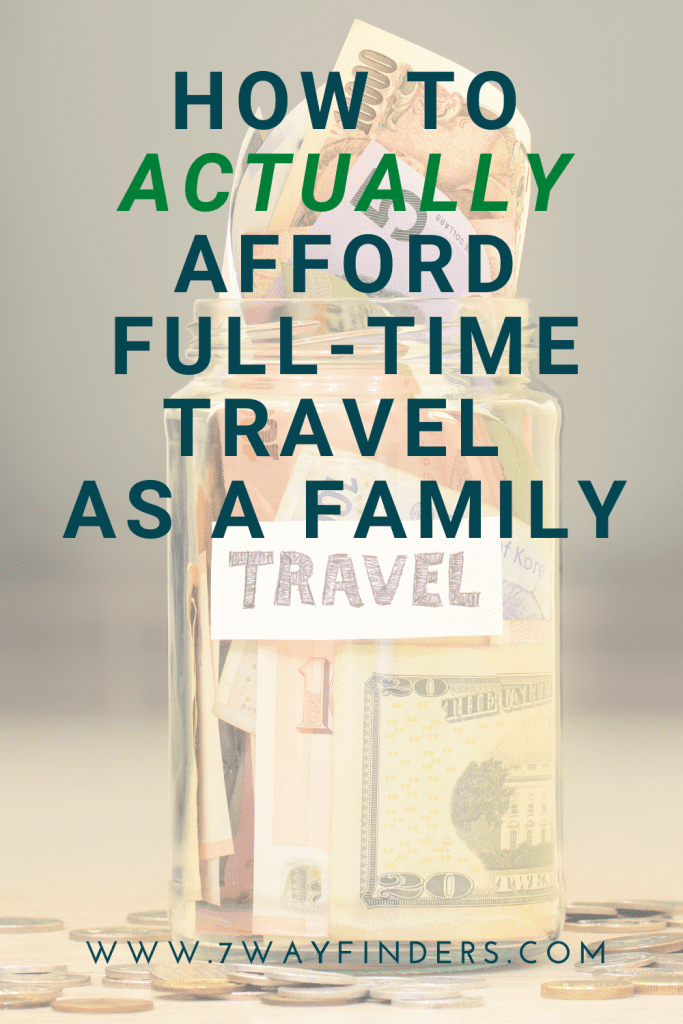

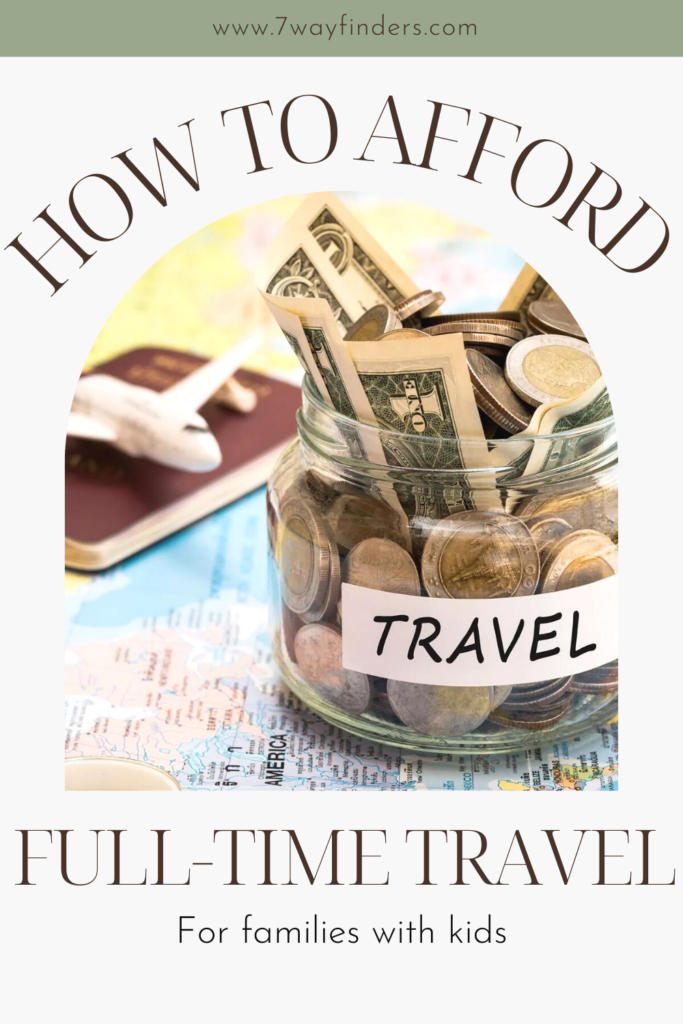
RESOURCES-
FLIGHTS:
ACCOMODATIONS:
ACTIVITIES:
TRAVEL INSURANCE:
As a large, full-time traveling family, travel insurance is a must for us. It’s always a good idea to have travel insurance in case something goes wrong. With the unpredictable state of the world, it is more important now than ever.
We love World Nomads for our travel insurance. They provide travel insurance to travelers from over 130 countries and have many policy options to fit your needs. World Nomads allows you to add multiple destinations to your plan, so it is great for those always on the move. (Coverage may not be available for residents of all countries, states, or provinces. Be sure to carefully read your policy wording for a full description of coverage
We also love Travel Insurance Masters. They offer a wide selection of plans to suit every traveler. They work only with reputable insurance providers and recommend the best plan for a traveler’s specific trip, and offer side-by-side comparisons of a multitude of plans all in one place. Their smart algorithm and filters make requesting a quote and purchasing travel insurance easier than ever.
TRAVEL NECESSITIES:
For a comprehensive list of all the 7 Wayfinders Travel Must-Haves, Click Here.
Tip: If you are making an online purchase (airline tickets, hotels, clothing…basically anything you can imagine) be sure you are using Rakuten! You can either download the app if you are shopping on mobile, or open a browser on a desktop. You then type in the store you are looking to shop at (ie: hotels.com, amazon.com) and shop like normal. The only catch…you get money back! Each store is different, but you can get anywhere from 2%-35% cashback on every purchase! For us, it’s a no-brainer. We are shopping anyways, might as well get some money back!

I gotta favorite this website it seeems veery beneficial extremely helpful. Nisse Falito Hennessey
I gotta favorite this website it seeems veery beneficial extremely helpful. Nisse Falito Hennessey
I gotta favorite this website it seeems veery beneficial extremely helpful. Nisse Falito Hennessey
I gotta favorite this website it seeems veery beneficial extremely helpful. Nisse Falito Hennessey